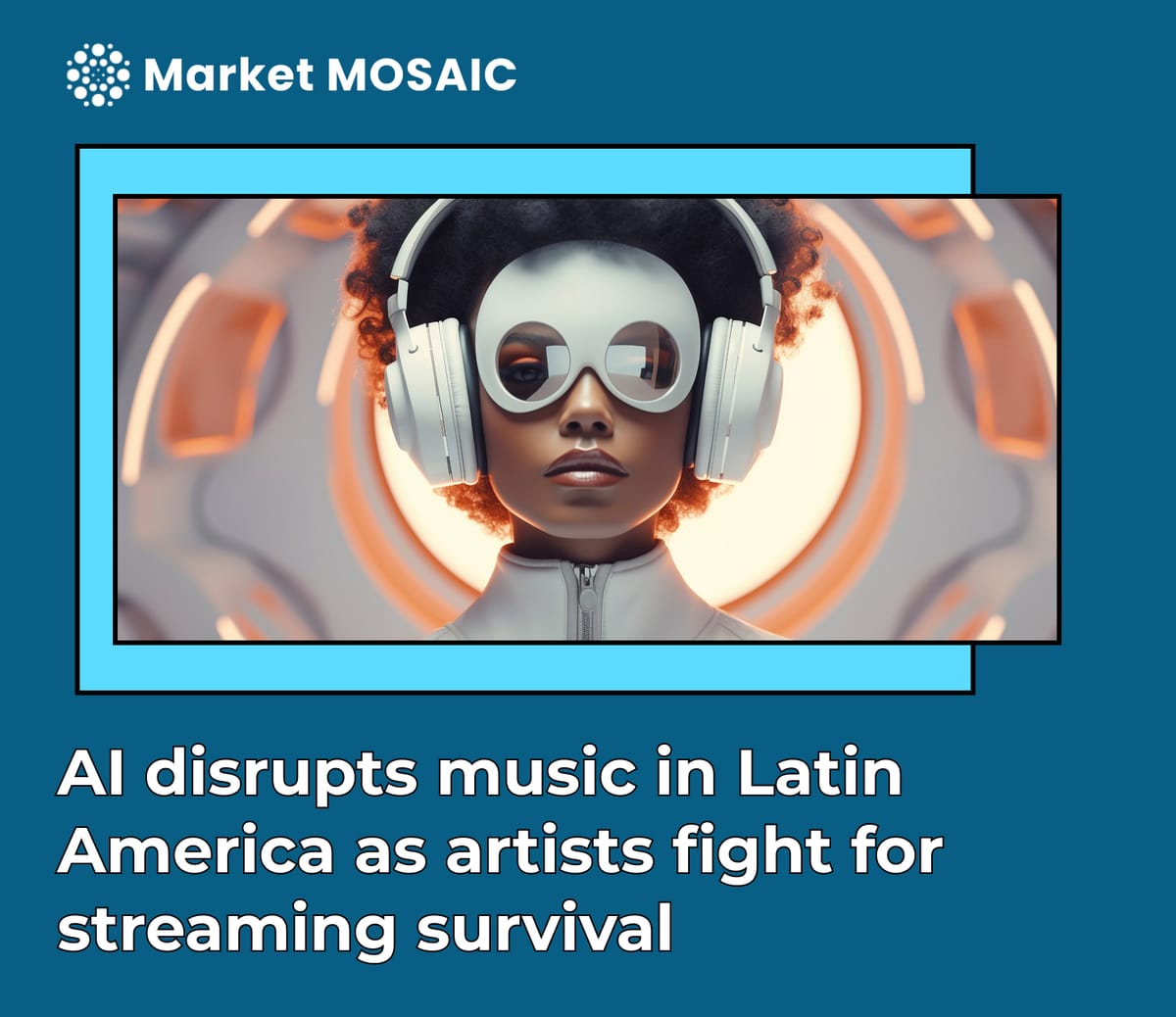AI disrupts music in Latin America as artists fight for streaming survival
AI now makes up 18% of uploads on Latin America’s streaming platforms. Algorithms reward volume, pushing artists out of sight and cutting into earnings. The real question is whether authentic music can still earn a living in a world where algorithms set the stage.

A cultural powerhouse under pressure
Latin America has always been a force in global music; from reggaetón to bossa nova. But today, its vibrant ecosystem faces a new and unexpected rival: artificial intelligence.
On Deezer, AI-generated music already accounts for 18% of uploads, up from 10% just months ago. Projections show that by 2028, AI tracks could capture 20% of streaming revenues, cutting into the already slim payouts that human artists depend on.
Quantity over quality
Most AI music still sounds generic, but its advantage comes from sheer volume. Streaming algorithms on Spotify and Deezer reward frequent uploads, and AI can flood platforms with tracks at almost no cost.
Independent musicians in Mexico, Brazil, and Colombia are losing visibility, with their tracks pushed down by AI-generated playlists that flood platforms at virtually no cost.
How artists are responding
Faced with shrinking visibility, artists are adapting in creative ways. Live shows are drawing bigger crowds, as fans seek authenticity that algorithms can’t replicate. Others are turning back to physical media; vinyl and even cassettes as a way to make music tangible again.
Collaborative playlists and grassroots fan campaigns are also on the rise, but for many musicians these feel more like survival tactics than long-term strategies.
Lessons for business leaders
The disruption goes beyond the music charts. What’s happening here is a preview of how AI can commodify creativity across industries. When the value of content shifts from originality to output, the monetization model itself comes under pressure, forcing a rethink of how creators and platforms generate sustainable revenue.
For streaming platforms, the challenge is balancing innovation with fairness and ensuring that monetization mechanisms don’t collapse under the flood of synthetic content. For artists and investors, the opportunity lies in building models that reward authenticity and generate real income, whether through regional streaming cooperatives, updated royalty frameworks, or curated experiences that place value back on human artistry rather than endless volume.
AI is already reshaping music, and the flow of synthetic tracks will only grow. The challenge now is can cultural authenticity survive and still pay in a world ruled by algorithms?





